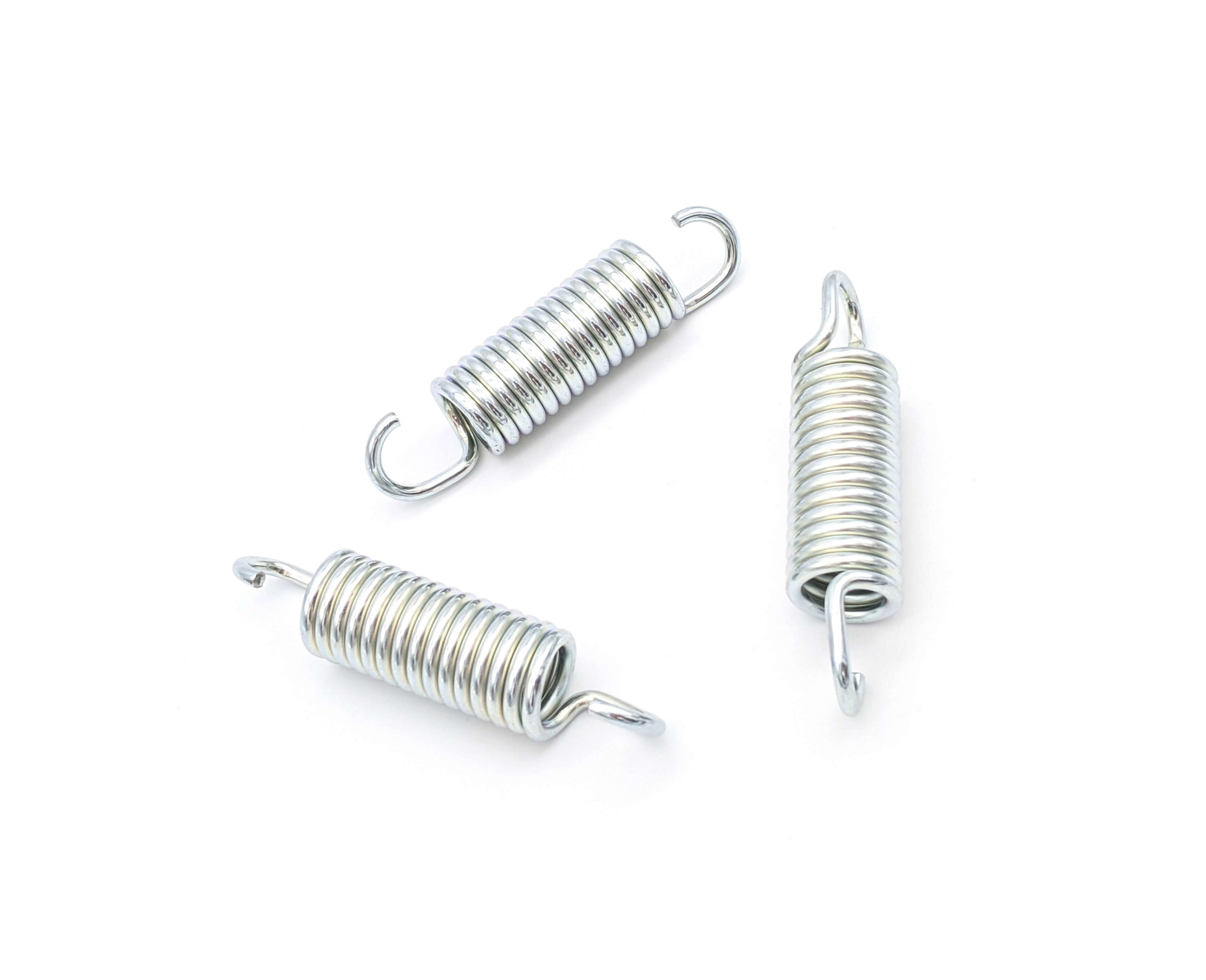Get unique, complex parts easily. No matter your requirements, Chaoyi Spring creates hard-to-produce coil springs and wire forms.
Let us help you create the custom wire form you need, from S-hooks and J-hooks to utility hooks and more.
We work closely with customers across a wide range of industries, helping them design and manufacture made-to-order parts.
Why choose Chaoyi Spring? We prioritize customer-focused collaboration, modern equipment and the latest technology to make your parts per print.
Find the information and guidance you need, from measuring a spring to learning about materials, placing an order and much more.
Ever wondered what happens when you compress a coil spring? It seems simple enough – you push down, the spring squishes, and it springs back. But there's a surprising amount


Ever wondered what happens when you compress a coil spring? It seems simple enough – you push down, the spring squishes, and it springs back. But there's a surprising amount of science and engineering packed into that seemingly straightforward action. This article will take you on a journey into the fascinating world of coil springs, exploring the forces at play, the materials involved, and the real-world applications that make these humble devices indispensable.

At the heart of compressing a coil spring lies Hooke's Law, a fundamental principle in physics. It states that the force required to compress or extend a spring is directly proportional to the distance it is compressed or extended from its equilibrium position. This relationship can be expressed mathematically as F = -kx, where F is the force, k is the spring constant (a measure of the spring's stiffness), and x is the displacement from equilibrium.
The spring constant, k, is a crucial property of a coil spring. A higher spring constant indicates a stiffer spring – it requires more force to compress or extend it by a given amount. Conversely, a lower spring constant indicates a more flexible spring. The spring constant depends on factors like the material of the spring, its diameter, the number of coils, and the way it's wound.
While springs can be made from various materials, spring steel reigns supreme for its combination of strength, elasticity, and resilience. Think of it as the ideal partner for compressing and releasing energy. Spring steel is specially engineered to withstand repeated cycles of compression and extension without permanent deformation. It's a testament to how material science plays a key role in the performance of springs.
When you compress a coil spring, you're essentially storing potential energy within its structure. This energy is released as kinetic energy when the spring is allowed to expand back to its original shape. The amount of potential energy stored is proportional to the square of the compression distance. This means that as you compress the spring further, the amount of energy stored increases exponentially.
It's worth noting that the compression of a coil spring is not always perfectly linear. As you compress it more and more, the coils begin to touch each other, creating additional resistance. This can lead to a slightly nonlinear force-displacement relationship, where the force required to compress the spring increases slightly faster than the distance compressed.
Coil springs are incredibly versatile and find their way into countless applications across various industries. Let's look at a few key areas where they shine:
Coil springs are essential components in automotive suspension systems. They absorb shocks and vibrations from the road, providing a comfortable ride and keeping the wheels in contact with the ground. Think of the suspension as a system of springs and dampers working together to handle the bumps and dips of the road. The springs store energy during bumps, and the dampers control the release of that energy, preventing the vehicle from bouncing excessively.
From clocks and watches to industrial machinery, coil springs are ubiquitous in mechanical systems. They provide the necessary force for movement, actuation, and energy storage. Imagine the complex mechanisms in your car, the intricate workings of a clock, or the powerful machinery in a factory – these all rely heavily on the properties of coil springs.
Even in the world of electronics, coil springs play a crucial role. They are used in switches, connectors, and actuators, ensuring reliable operation and providing a tactile feel to our devices. Think about the click of a mouse button, the satisfying snap of a phone case, or the smooth action of a retractable pen – these are all made possible by the ingenious application of coil springs.
Don't be surprised to find coil springs in places you might not expect. They're used in furniture, mattresses, and even sporting equipment like trampolines and archery bows. They are the silent heroes, ensuring comfort, stability, and a touch of resilience in our everyday lives.
As technology advances, so do the applications and possibilities for coil springs. Researchers are exploring new materials, innovative designs, and advanced manufacturing techniques to push the boundaries of spring performance. From micro-springs used in miniature devices to superelastic springs with remarkable properties, the future of coil springs is filled with exciting possibilities.
Compressing a coil spring might seem like a simple act, but it's a testament to the ingenuity of science and engineering. From the fundamentals of Hooke's Law to the wide range of applications, coil springs are essential for a world of motion, comfort, and innovation. As we continue to explore new materials and design possibilities, the role of coil springs in our lives is only set to grow and evolve.
Browse some of the custom wire forms and springs that we manufacture. Don’t see what you need? We specialize in made-to-order products that meet your application requirements.
Visit Our GalleryNeed a custom wire form or coil spring? We make it work. Fill out the contact form and a representative will respond within 1 business day. If you have a PDF or CAD file, you can submit to request a quote.